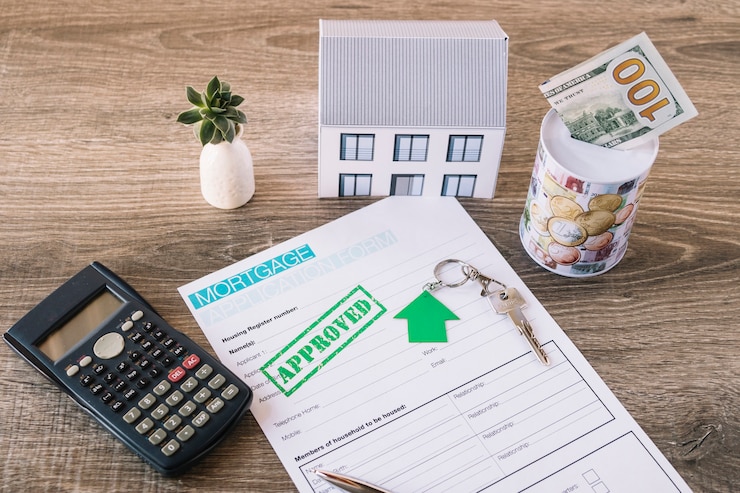One system that feels surprisingly anachronistic in the center of Silicon Valley, where innovation influences almost every part of life, is property taxes. Furthermore, San Jose’s numbers are not only high but also noticeably higher than the national average. San Jose has a median effective property tax rate of 1.46%, which is higher than the national average of 1.02%. However, the true impact of this rate is caused by home values that push budgets to their limits.
At $8,329 annually, the average property tax bill in San Jose is more than three times higher than the $2,400 national median. This dramatic increase isn’t the result of high tax rates, but rather of the high median home value of $588,361, which raises yearly obligations. These figures may seem predictable given California’s thriving tech sector, but they shouldn’t be taken at face value.
📊 San Jose Property Tax Summary – Table for WordPress
| Data Point | Value |
|---|---|
| Median Effective Tax Rate | 1.46% |
| California State Median | 1.21% |
| National Median | 1.02% |
| Median Home Value (San Jose) | $588,361 |
| Median Property Tax Bill | $8,329 |
| Highest Zip Code (95122) | 1.68% |
| Lowest Zip Code (95141) | 1.15% |
| Assessment Method | Based on assessed value (lower than market value, includes exemptions) |
| Reference Site | Santa Clara Tax Collector |
Why Living in San Jose Is More Expensive
San Jose’s tax rate may appear reasonable at first. However, the final bill rapidly escalates when applied to some of the most expensive homes in the country. Every year, Santa Clara County’s budgetary requirements—which include funding for parks, schools, emergency services, and infrastructure—determine these rates. The surprisingly effective method, which is frequently incomprehensible to the typical homeowner, involves local governments calculating the required revenue and dividing it by the total value of taxable properties.
Assessed values have increased in recent years due to inflation in real estate driven by technology. These changes can feel sudden and even overwhelming to longtime residents. However, the burden can be considerably lessened with careful preparation and knowledge of local exemptions.
Exemptions That Are Frequently Ignored But Extremely Beneficial
Assessed value is used to determine San Jose property taxes, and homeowners, senior citizens, and veterans may be eligible for deductions. The potential impact of these exemptions is often overlooked by property owners. For instance, the typical homeowner’s exemption may reduce the assessed value by $7,000; this is not much by itself, but when combined with other reductions, it can significantly lower your annual bill.
Homeowners can recalculate their tax obligations in a more equitable and less stressful manner by taking advantage of the available exemptions. You must apply; the process isn’t automated, but the rewards make the paperwork worthwhile. Actually, a lot of financial advisors now advise going over these choices as part of a yearly budgeting plan.
A Clever Tool That Makes Math Easier
It’s one thing to understand your bill; it’s quite another to estimate it in advance. Ownwell’s San Jose Property Tax Calculator can help with that. With just two inputs—the assessed value and the local rate—homeowners and potential buyers can estimate annual taxes using this incredibly user-friendly online tool. By doing this, it eliminates uncertainty and offers a very accurate forecast for arranging purchases or rental investment returns.
The tool is especially helpful for navigating the complexities of California’s tax system because it reminds users that assessed value is not the same as market value and accounts for exemptions, appeals, and long-term caps.
Differences by Zip Code That May Impact Your Profits
Zip code variation is one of the less well-known features of San Jose’s property tax environment. The rate may be much higher—or lower—depending on where you live. For example, the median rate for homes in 95122 is 1.68%, whereas the rate for residents of 95141 is lower at 1.15%. These minor variations add up to thousands of dollars over time, particularly when computed over mortgage terms of ten or thirty years.
This zip code tax map is a useful tool for first-time buyers and investors when making decisions. One neighborhood’s lower tax rate may lead to noticeably better long-term affordability, even though it may appear to have slightly higher prices.
What You Should Know About San Jose Unsecured Property Tax Payment
Real estate is not the only factor that affects property taxes. Unsecured property, such as boats, business assets, and airplanes, has its own system in San Jose. With the exception of regular weekend maintenance, business owners can make payments online by providing their assessment number, business name, or location.
This calls for careful scheduling on the part of small business owners. In a pricey city where every dollar matters, avoiding late fees and missed deadlines is not only good practice but also an indication of financial restraint.
Changing Property Tax from an Obligation to a Strategy
San Jose residents can take back control of their property tax experience by being informed, asking the right questions, and utilizing resources like Ownwell’s calculator. Rates are high, indeed. However, with the correct strategy, there are obvious ways to save money, particularly when neighborhood comparisons, exemptions, and appeals are taken into account.
In the larger framework of San Jose’s development, knowing property taxes is now crucial to maintaining financial stability in a cutthroat market. The best tax plans are constructed with structure, strategy, and foresight, much like a well-managed home.

